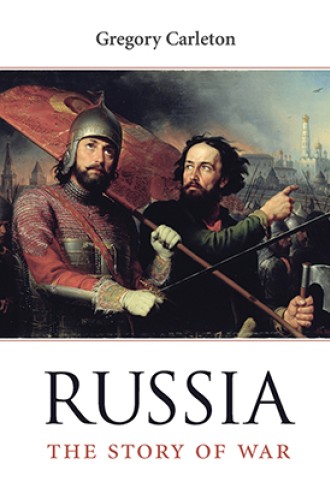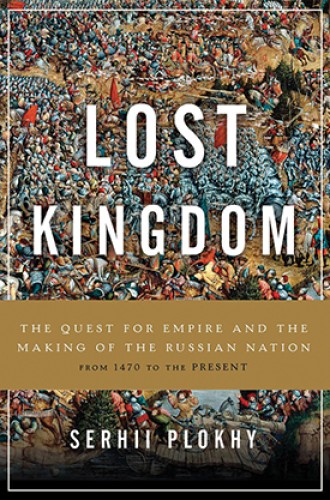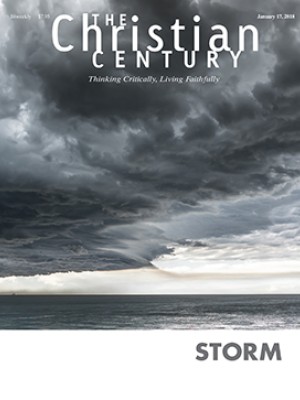The history and myths that made Russia
How did Russia's longstanding sense of grievance morph into a civil religion?
How did Russia come to be the kind of nation that it is? What are the roots of its particular identity? Gregory Carleton and Serhii Plokhy take on these questions, and both turn to similar events in the nation’s history and parse out their meanings in a similar way. But their histories are very different, and thus it is instructive to read them together.
Plokhy, who teaches at Harvard University, is interested in how Russian identity came to encompass Ukrainian identity, why it constantly feels the need to threaten Ukrainian independence in the name of a unified Russia, and what this means for the future of the geopolitical area. But Lost Kingdom does not begin where so many histories of Russia begin.
Read our latest issue or browse back issues.
Typically, such histories, especially of the romantic variety, begin in the tenth century when Prince Volodymyr (Ukrainian spelling) or Vladimir (Russian spelling) united himself and his people with Orthodox Christianity, thus establishing his kingdom as an enemy to the invading Mongols and pitting Christianity against Islam. The center of Rus’, as this short-lived kingdom came to be called, was Kyiv (Russian spelling: Kiev), and Russians have claimed it as the beginning place of their civilization.
Plokhy’s history begins 500 years later, in 1472, during the reign of Ivan III. At this time, Moscow was first becoming established and calling itself the Third Rome, the center of Christianity after the fall of Constantinople to Muslim armies. At this moment, Plokhy argues, the Russian monarchy went looking for an origin story and reached back to the history of Volodymyr. It portrayed itself as the inheritor of the lost kingdom of Rus’. Thus Ivan III declared himself the ruler of “all Rus’”—a collection of lands as imaginary as it was real, and always contested.
This story legitimized Ivan’s claim that Moscow was the true Orthodox center of the world. By then, Kyiv was under the rule of the Grand Duchy of Lithuania, a Catholic monarchy. Many of Kyiv’s Christians were Uniate—Catholics who used the Byzantine rite. They obviously could not be the carriers of a true Orthodoxy. Only Moscow could inherit the title.
Plokhy marks this era as the beginning of the Russian nation, which has forever confused itself with ancient Rus’. This confusion has not only created a claim to Ukrainian lands and people that Russia asserts to this day, it has also served as the origin story for the Russian nation. With this origin story, we can understand distinctive elements of the Russian nation: its belief in the importance of the unity of church and state, for example, and its territorial hunger to reconfigure what it imagines to be the unified Rus’.
Carleton, who teaches at Tufts, gives the story a different spin. He is interested in how Russian politicians, writers, and historians have created a mythology of a victimized Russia which is always in need of defense. Russia does not, Carleton argues, see itself as a territorial aggressor but as a nation that has been under constant attack like no other. No other nation, Russia believes, “has faced such a persistent wave of challenges and threats for century upon century.” This sense of grievance and fierce self-defense has given the Russian nation a distinct identity. Carleton calls this identity a kind of civil religion for Russia, rooted in its exceptionalism, including a belief that it alone has saved civilization many times.
Carleton explores the Rus’ origin myth only in passing and as it arises in Vladimir Putin’s speeches. But like Plokhy, Carleton sees that the Russian myth has to be continually reinvented—not unlike the American one—for each successive generation. More often than not, a battle arrives that fits the occasion: Aleksander Nevsky on the Neva River in 1240 against the Swedes, Prince Dmitry of Moscow on the Don in 1380 against the Mongols, the Poles crushed by Peter the Great, the defeat of Napoleon Bonaparte in the 19th century, the Germans laying siege to Leningrad before being set back and ultimately defeated by Russian persistence and strength.
In the midst of this history, the Soviet period notwithstanding, holiness and nationhood became deeply intertwined. Mary the Mother of God (in Orthodox tradition, the Theotokos) became a symbol of the motherland herself, which in Russian civil religion is different from the fatherland. As Carleton lays it out, the fatherland is a political entity and the motherland a spiritual one. Fatherland only came into use during the imperial age initiated by Peter the Great. It conveys an authority to rule that is distinct from the connection between the land, faith, and people connoted by motherland.
The implications of conflating religious vocabulary with military power are ominous. Russia, as Carleton sees it, is deeply invested in the myth of its holy mission. No one is more invested in this myth than Vladimir Putin. Carleton believes that in order to maintain its identity, Russia must engage in never-ending wars in which it portrays itself as always the victim but never the vanquished. In Russian mythological accounts of its history, all wars combine into one paradigmatic war in which the nation’s identity is forged.
Plokhy, on the other hand, sees the problem as a lack of clarity about where Russia begins and ends: what its boundaries are and what constitutes its people. In the post-Soviet era, this ambiguity generates confusion about Russia’s relationship to the former Soviet republics—especially Ukraine. Plokhy asks, “Is Russia to become a modern nation-state, or will it remain a truncated empire, driven into ever new conflicts by the phantom pains of lost territories and past glories?” The answer, according to both Plokhy and Carleton, is that Russia is still far too invested in its imperial past to join the community of nations.
A version of this article appears in the January 17 print edition under the title “How Russia was made.”









